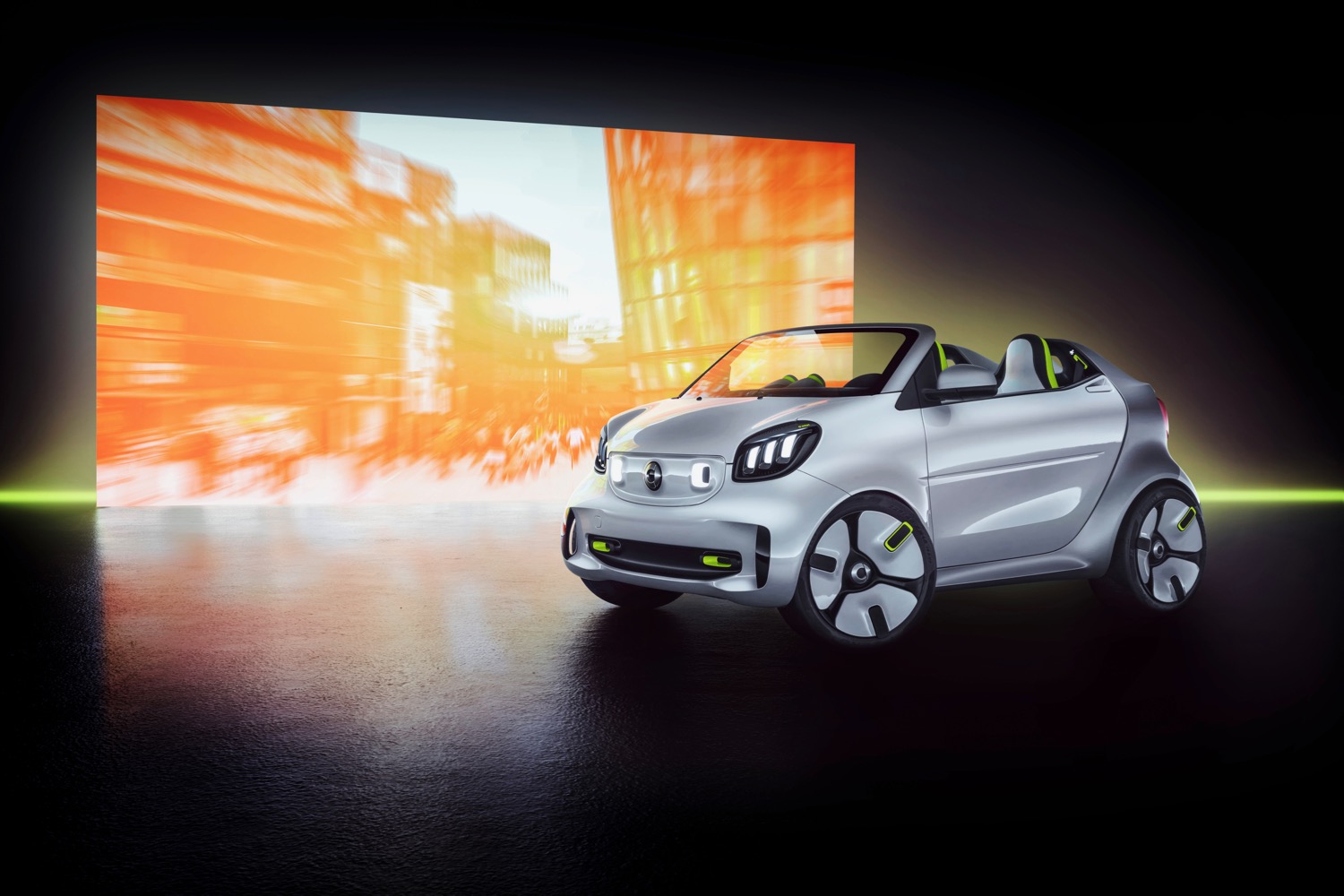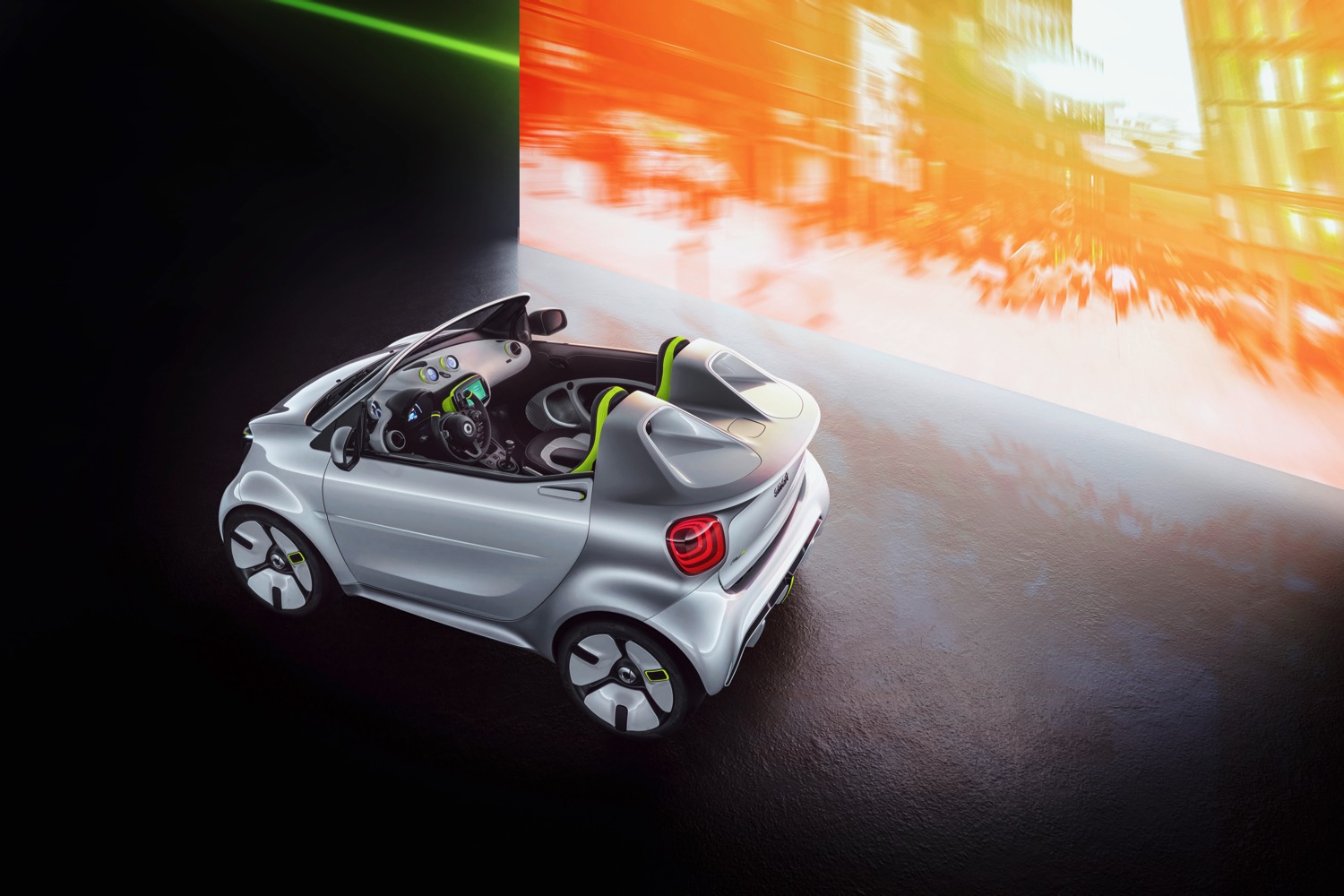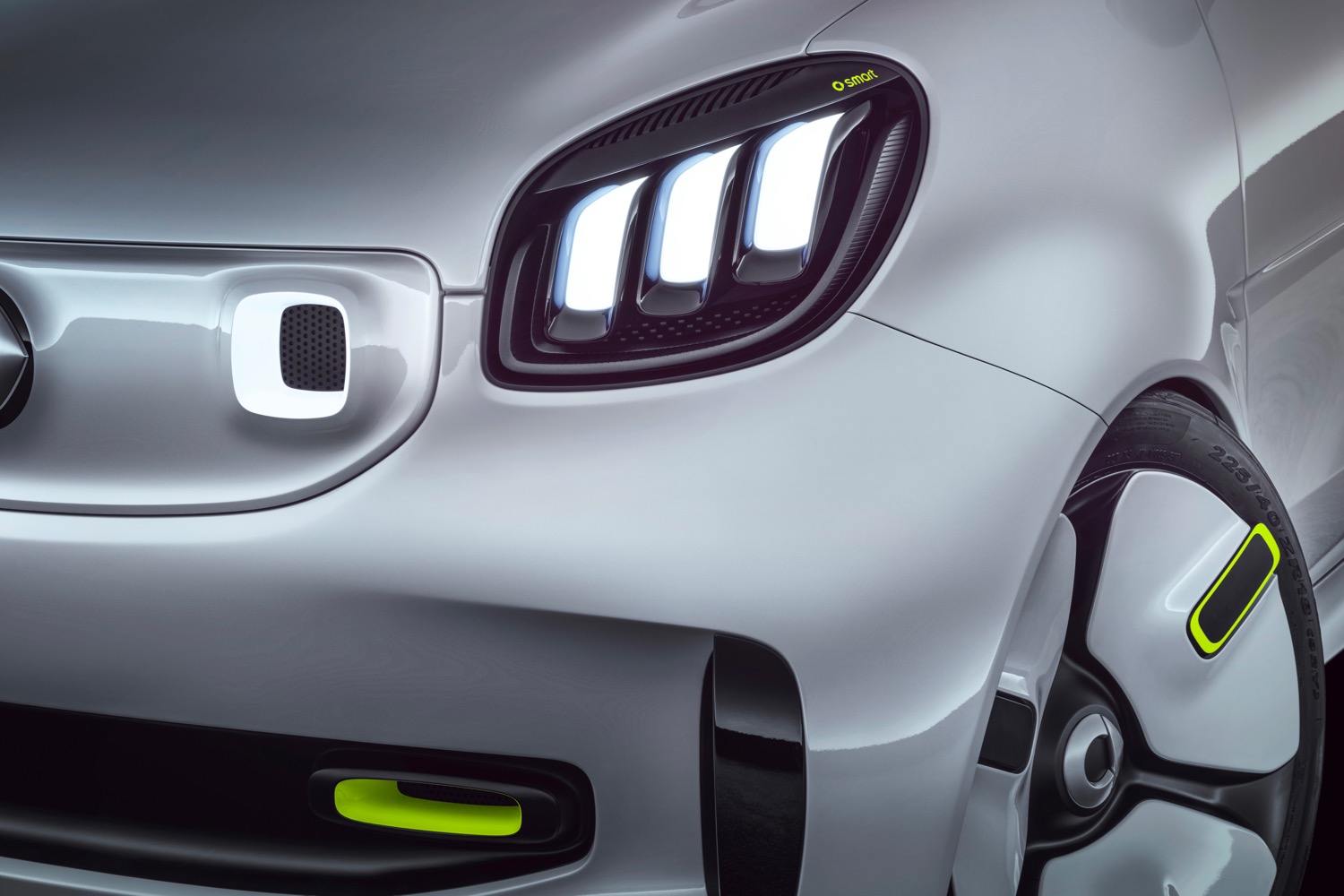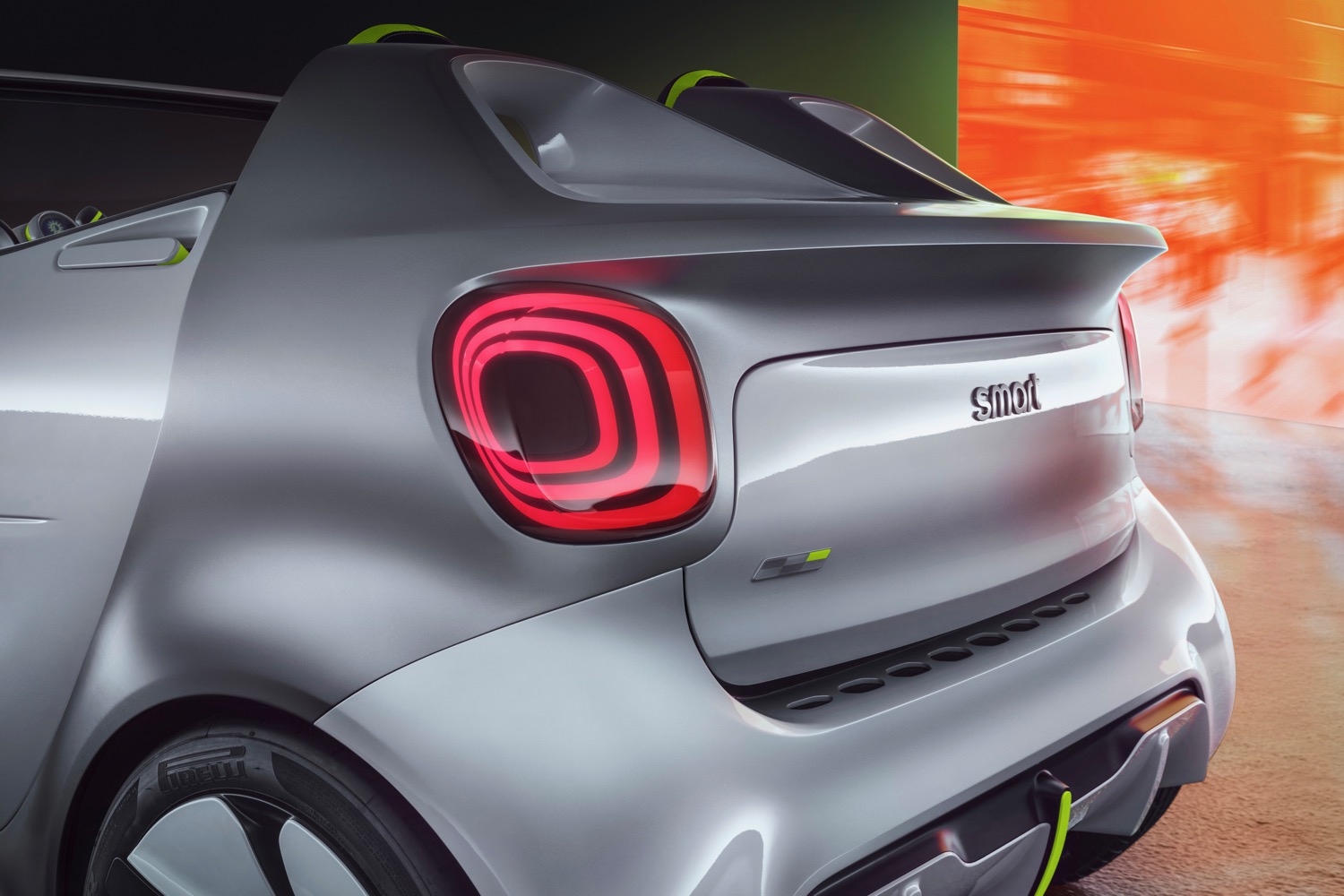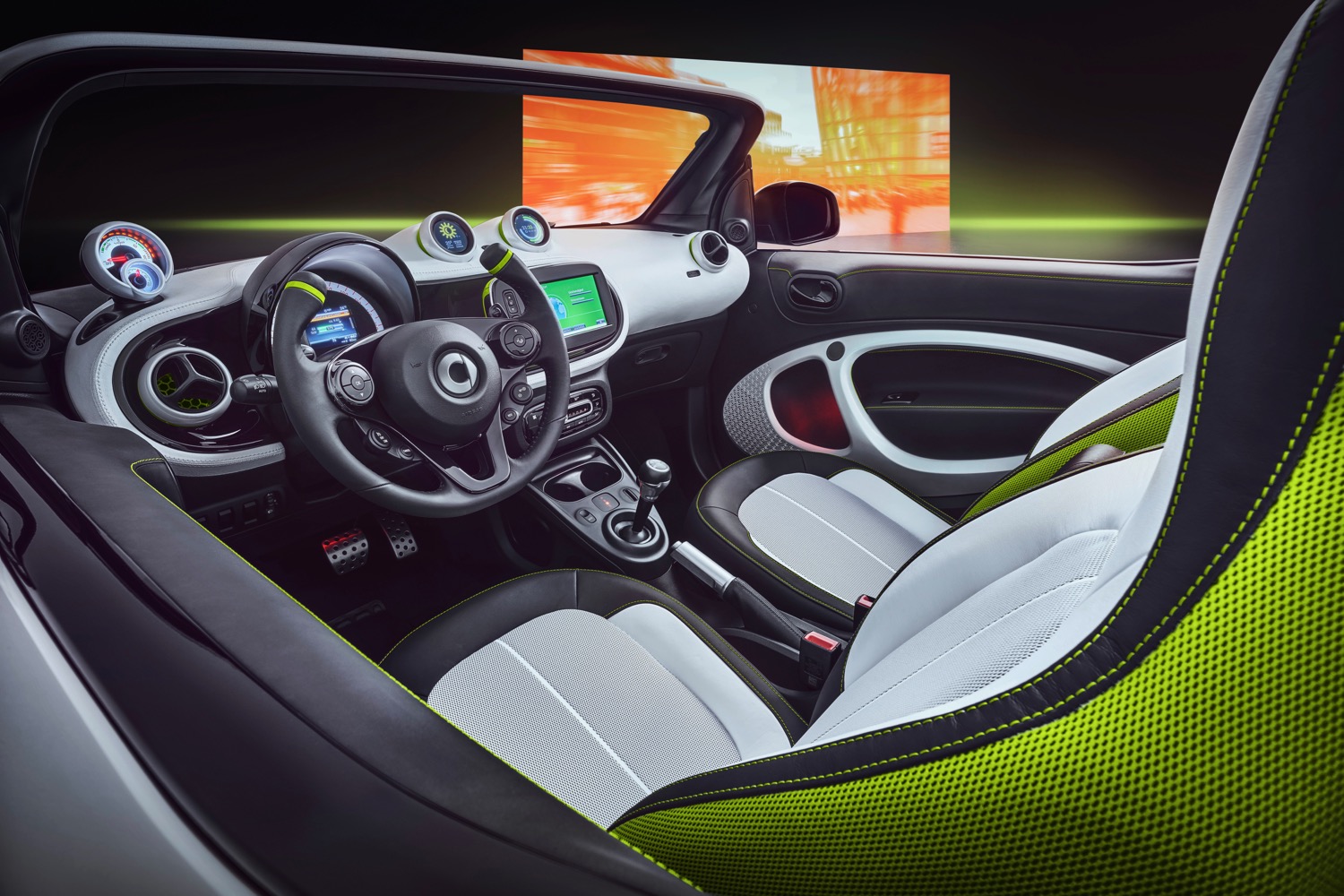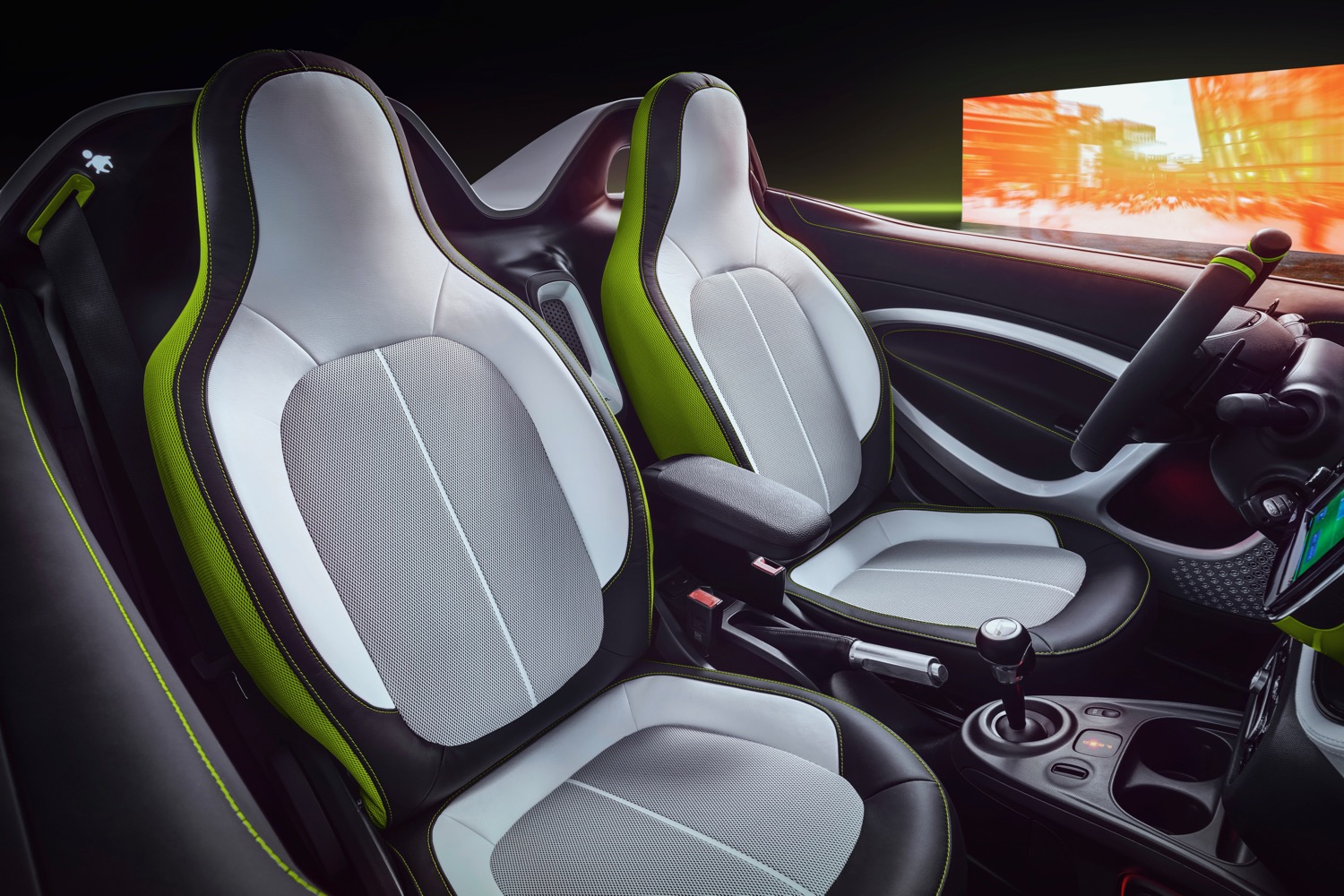Smart has reduced its trademark city car to the absolute minimum with the new Forease concept. Debuting at the 2018 Paris Motor Show, the Forease is essentially a Fortwo with the roof completely hacked off.
The Forease is the successor to wacky Smart concept cars like the 2001 Crossblade (which also went into production) and 2011 Forspeed. The roofless design is supposed to add some drama to the design, while removing the last ounce of practicality from the tiny car. The concept car lacks a convertible top, so the driver had better check the weather report before setting out. The low windscreen and fairing behind the seats mimic classic speedsters, although the Forease probably isn’t as sporty.
Smart didn’t discuss the powertrain other than to say it was electric. The current Fortwo EQ (formerly badged “Electric Drive”) production model’s electric motor produces 80 horsepower and 118 pound-feet of torque. While current Fortwo models are rear-wheel drive, that lack of power makes for leisurely acceleration, even in such a tiny car. Smart quotes zero t0 60 mph in 11.4 seconds and a top speed of 81 mph for the Fortwo coupe. The Fortwo Cabrio convertible takes 0.7 second longer, with the same top speed.
Parent Daimler plans to make Smart an all-electric brand globally by 2020. Smart began selling only electric cars in North America beginning with the 2018 model year. That may seem like forward thinking, but Smart’s gasoline cars were never that popular to begin with on this side of the Atlantic. Most U.S. and Canadian car buyers don’t live in city centers, the only places where the Fortwo’s excellent maneuverability is relevant. Everywhere else the car just seems slow and impractical. Low gas prices have also crushed sales of fuel-efficient vehicles.
Smart celebrates its 20th anniversary at the 2018 Paris Motor Show, and it’s unclear what the next 20 years will bring. Being an all-electric brand may not be a distinguishing factor for long as established automakers ramp up their electrification plans, and Smart’s focus on small cars means it will likely remain a niche affair either way. It’s possible that Daimler will adapt Smart to the much-discussed future of autonomous shared vehicles. Maybe that will make people care about Smart again.
